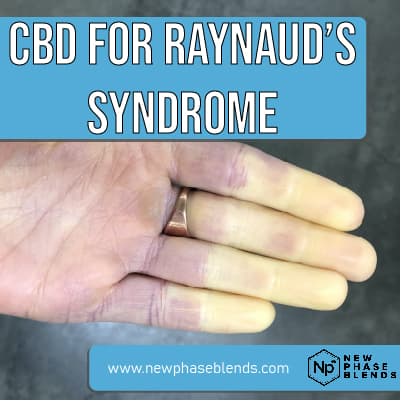In recent years, cannabidiol (CBD) has become a popular natural remedy for many conditions, and most people agree by now that it can be life changing for some users. While it seems to excel in some areas, does using CBD for cancer accomplish anything? Will CBD cure cancer? Can you use CBD oil for cancer treatments? A growing number of people are turning to this oil as a potential treatment for cancer and other illnesses, but should they be? In this article, we will explore the science behind the relationship between cannabidiol and cancer, and discuss whether or not it may be a viable treatment option.
TL;DR – There is currently no scientific evidence, at all, that supports using CBD oil, or any other CBD product cures cancer. That said, some patients may benefit from using CBD oil products to help manage the discomforts that come along with cancer or chemotherapy.
Can CBD Oil Help With Cancer?
CBD does not cure cancer, but it may help cancer patients cope with their discomforts from having cancer, if that makes sense.
Cannabinoids are the active chemicals found in cannabis. They interact with the body’s Endocannabinoid System, which is responsible for keeping various functions such as sleep, mood, and pain tolerance balanced. This system has been found to play a role in cancer development and progression, which has sparked interest in using cannabinoids as a treatment for cancer.

The use of cannabinoids for cancer is still being studied, but so far, the findings are pretty promising. Different cannabinoids have been shown to cause reduce the ability of cancers to spread, stop the development of blood vessels, block cell growth, and reduce inflammation and cell death.
Some scientists have also discovered that cannabinoids can sometimes encourage cancer cells to grow and cause damage to blood vessels, but more research is needed in this area.
Though there is still much to learn about the potential benefits of CBD oil for cancer patients, some preliminary research suggests that it may help to enhance the uptake or increase the potency of certain drugs used to treat cancer.
According to the Journal of the Association of Basic Medical Sciences (2019), CBD oil may help slow tumor growth, reduce tumor invasion, and induce cell death.
Though more research is needed, these findings suggest that CBD oil may have therapeutic potential for treating certain cancers.
Cannabidiol (CBD) Oil Explained
Cannabidiol, or simply CBD, is a natural product derived from the cannabis plant. Unlike its better-known counterpart, tetrahydrocannabinol (THC), CBD does not produce a ‘high’ and is therefore more desired in the medical community for the assistance in dealing with the difficult symptoms cancer brings with it.
The school of thought here is, if something doesn’t get you high, it will be much less addictive, or even non-addictive.
CBD oil is used to aid in treating symptoms associated with various medical conditions, including anxiety, depression, chronic pain, and epilepsy.
The cannabis plant contains many compounds which are known as cannabinoids. Cannabidiol is one such cannabinoid, and is usually extracted from hemp – a species of the cannabis plant that contains high levels of CBD. The other species is known as marijuana, which almost everyone knows about.

The medical community has long known CBD, but its therapeutic properties were not heavily scrutinized until it became legal in 2018. Before 2018, CBD was lumped in with all other controlled substances because it was associated with marijuana – even though CBD cannot get you high.
Can CBD Oil Help Treat Cancer Symptoms and Side Effects?
Cancer patients often suffer debilitating symptoms, including nausea, vomiting, and pain. Several treatments can help reduce these symptoms.
One treatment option that has shown promise is cannabinoid-containing medications. The FDA has approved some cannabinoid-containing medications to reduce the side effects of cancer treatments.
Examples include dronabinol and nabilone, synthetic THC medications that can help reduce nausea.

Another study found that cannabinoids helped to improve sleep in people with cancer. It also showed that cannabinoids reduced inflammation in cancer patients. A 2022 study in the Journal of Cannabis Research found that CBD may help to reduce pain and inflammation in people. When it comes to pain, that might be one of the worst effects of enduring cancer.
Admittedly, more research is needed to determine the full extent of the benefits of cannabis oil for people with cancer.
However, it appears that cannabis oil may help to reduce some of the symptoms associated with cancer and its treatment with minimal side effects.
CBD Oil and Cancer Treatment
Most people will use CBD oil when going through cancer treatment to help with the horrible side effects of cancer-fighting medication. Cannabis-based medicines, like CBD oil, are becoming a popular treatment for cancer side effects. The most common use of cannabis-based medicine for cancer patients is to help with nausea and vomiting.
A cross-sectional survey in 926 patients at the Fred Hutchinson Cancer Research Centre (Seattle) found that 66% had used cannabis previously, with 24% of respondents having used cannabis in the past year and 21% in the past month. Of the 24% (n = 222) of respondents who were active users, around 75% used cannabis for physical symptoms (pain, nausea, appetite), 63% for neuropsychiatric symptoms (stress, coping with illness, depression/improve mood, sleep), and 26% reported they believed cannabis was helping to treat their cancer.
Cancer (OBrien, 2022)
CBD oil can also help relieve pain, insomnia, and anxiety. Presently, three prescription marijuana-based medicines are legal in the United States, but they have limited diagnostic capabilities.
Two of the three approved medicines are currently used to treat cancer side effects.
Comparing CBD to Other Forms of Cancer Management Options
None of these substances should be considered as alternatives to standard cancer treatments. They may have roles in symptom management as part of a comprehensive treatment plan developed with oncology healthcare providers.
Marinol (dronabinol):
- FDA-approved synthetic THC medication
- Approved for chemotherapy-related nausea/vomiting and AIDS-related anorexia
- Like Cesamet, it does not treat cancer directly
- Available by prescription only
- Standardized pharmaceutical manufacturing
Cesamet (nabilone):
- FDA-approved synthetic cannabinoid
- Specifically for chemotherapy-induced nausea/vomiting
- Does not treat cancer directly
- Used when other anti-nausea medications have failed
- Prescription-only with consistent quality control
CBD oil:
- Not FDA-approved for any cancer-related use
- Some early research on potential anti-tumor effects, but still preliminary
- May help with symptom management
- Quality and potency vary between products
- Available over-the-counter in many places
Is CBD Oil Safe to Use For Cancer Management?
CBD oil’s role in cancer management requires careful consideration of its safety profile and potential interactions. While generally well-tolerated by most people, CBD can cause side effects including fatigue, diarrhea, and changes in appetite. More seriously, it may affect liver function and interact with various medications, particularly those used in cancer treatment. The unregulated nature of CBD products adds another layer of complexity, as quality and purity can vary significantly between manufacturers.
For cancer patients considering CBD oil, medical supervision is essential. CBD can interact with chemotherapy drugs and other cancer medications, potentially altering how the body processes these treatments. This interaction could either increase or decrease their effectiveness, making healthcare provider oversight crucial. The lack of standardization in CBD products also raises concerns about contaminants and inconsistent dosing, which could be particularly risky for cancer patients with compromised immune systems.
To use CBD oil safely, several important steps should be taken. First and foremost, consult with your oncology team before starting CBD use. All healthcare providers involved in your care should be informed about CBD use to ensure comprehensive treatment monitoring. When purchasing CBD products, choose reputable manufacturers who provide third-party testing results. Careful monitoring of any side effects or changes in your condition is essential, as is keeping track of timing with other medications.
Patients should be particularly alert for warning signs that require immediate medical attention. These include severe fatigue, significant changes in appetite or digestion, unexpected changes in how you feel during treatment, or any new or worsening symptoms. While CBD oil may offer potential benefits for symptom management in cancer patients, it should never be viewed as a replacement for standard cancer treatments. Any incorporation of CBD into a cancer management plan should be carefully overseen by healthcare providers to ensure it’s both safe and appropriate for your specific situation.
CBD May Interact With Other Medications
While rare, cannabidiol (CBD) has the potential to interact with other medications. Many people on cancer treatment are on a host of other medications, so it is extremely important to discuss using CBD with your doctor or pharmacist. They will be able to reference whether or not your medications are safe to use along with CBD.
Summary – CBD Oil For Cancer Treatment
CBD oil is a promising approach to dealing with the pain associated with cancer. It will not cure cancer, but it can help people cope a little bit better if they are suffering from this nasty disease. It’s also important to remember that CBD oil is not a cure-all and is not right for everyone.
Be sure to talk to your doctor before starting any new treatment, especially if you are currently undergoing cancer treatment. Pure CBD oil may help ease some cancer symptoms and side effects and may help you feel better.
However, more research is needed to determine whether CBD oil is effective for cancer treatment. Maybe CBD oil will be a standard cancer treatment in the future, but for now, it’s important to proceed knowing that we simply need to learn more about it.





















